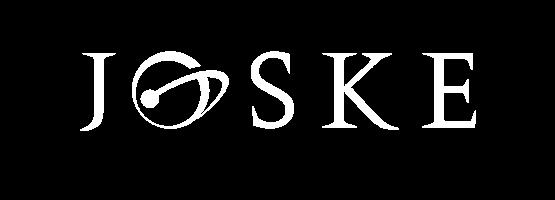

JOSKE THOMPSON Global Real Estate Advisor, CIPS, FIABCI 415.608.2233 | Joske@Joske.org | DRE 00843865 1699 Van Ness Avenue, San Francisco CA 94109
WELCOME
BUYERS GUIDE WAS MADE FOR:

CHARMAINE CURTIS & MICHAEL SIMMONS
Dear Property Buyer, You are about to embark on an exciting journey with Compass seeking and securing the property of your dreams. My job in this journey is not only to see that you find that property at the best possible terms, but also to aid you in the entire process from beginning to end. Here, then is the package I have prepared for you to explain the particulars of buying a property. You will find it useful to familiarize yourself with the various documents and procedures you will be encountering throughout the property acquisition process. Please read the material over and feel free to contact me if you have any questions or require any further information that you feel is pertinent to your specific situation.

Seven Benifits To Buying Property
Tax Deductibility of Mortgage Interests and Tax Deductibility of Property Taxes
Qualified mortgage investment on the first mortgage and home equity loans are deductible as well as Property Taxes on a first or second home are deductible on Schedule A as a personal deduction (up to $10,000 annually in addition to State and Local taxes) and qualified home acquisition indebtedness (up to $750,000 for homes acquired on or after 1/1/18)
Congress allows preferential tax treatment on gains from capital assets held for more than one year. This would be important for a homeowner who has gains in excess of the allowable exclusion.
3 6
Real estate is considered a good long-term investment because it usually continues to appreciate. The effects of leverage can multiply this increase when borrowed funds are used to purchase the home.
Mortgages are designed to pay the interest for the time that the money has been used, as well as to retire the principal debt over a period of time. This means that part of the payment each month is for the principal accumulation.
4 7
A homeowner can exclude up to $500,000 of capital gain if married and filing jointly, or up to $250,000 if single or filing separately for homes that have been the taxpayer’s principal residence for two of the past five years.
Pride of ownership is a valid reason for wanting to own a home. You can decorate it to your own taste and enjoy all the benefits while making a great investment.
Appreciation Potential Capital Gains Exclusion
1&2
Capital Gain Treatment Principal Accumulation You Can Enjoy It!!!
5
Our Professional Relationship
If you have any questions about how I work, please ask. Our professional relationship is critical to the successful purchase of your home.
My commitment to you
I am a full time professional Realtor®. I am educated in the legal aspects of real estate practice and licensed by the Sate of California to provide real estate services. As a member of both the California and National Associations of Realtors®, I abide by a strict Code of Ethics to provide you with the highest level of service. As an associate with Compass I am part of one of the strongest networks of professional Realtors® in the Bay Area. I earn my living by serving the needs of homebuyers and seller with integrity.
Benefits of service
A large part of my work is performed “behind the scenes”; previewing homes, researching comparable sales, gaining market knowledge, evaluating changing legislation, and maintaining my professional credentials. For every hour I spend showing you homes, I will have spent up to ten hours preparing. I am constantly acquiring information that will help to better serve you. One of the first things I do is to merge your profile with the MLS. The benefit to you is that you will be one of the first people to see a new home on the market. Since the best values sell within days, we feel that it is crucial for you to see the homes first.

How I am compensated

I am not paid a traditional salary; I work entirely on commission, which I receive only if I initiate and complete a transaction for you. I am compensated only when all of your needs have been satisfied and you take ownership of your new home. All of the service I provide are uncompensated unless you purchase a home through me. Real estate commissions traditionally are paid at the close of escrow from the Seller’s proceeds.
Your commitment to me
I will invest substantial time and effort in locating your home and will represent you with unequaled integrity throughout the purchase of that home. In return, I request your loyalty – a commitment that you will work with me exclusively, in selecting and purchasing your home.
Putting me to work for you
If you see any home that interests you, ask me about it. Whether it is advertised by sign, in the newspaper, a “For Sale by Owner,” listed with another Realtor®, or not even on the market – I am the best to represent you in the pursuit of that property.
The BMR Sales Process
Make Offer to Purchase
Using standard contract form, as your agent I will write the offer detailing all aspects of the transaction including down payment, financing, property inspections, condominium disclosures (if applicable) and all contingencies.
Negotiate with Seller
As Your agent, I will advise you on negotiation strategy and personally negotiate on your behalf with the Seller and Seller’s agent.
Ratify the Transaction
Both parties agree to price and terms in writing.
Continue Loan Application
It is assumed that the Buyer has been pre-qualified for the loan. All remaining paperwork is now due to the lender.

Conduct Inspections

As your agent I will assist you in scheduling inspections, will accompany you during inspections and help you interpret the reports. If necessary, credits from the seller will be negotiated.
Remove Contingencies
All contingencies in the contract relating to inspections, condominium documents and financing are removed in writing by the buyer. As your agent I will complete all forms for signature.
Loan is Funded by Escrow
Buyer Signs Loan Document and Closing Papers
Seller Signs Closing Papers
Escrow Closes
The deed is recorded and title to the property transfers to Buyer.
These are the basic parts of the sales process from the time a property is selected to the close of escrow
BMR Buying: Step-by-Step
Step 1
Select a REALTOR
I am a full time, professional REALTOR with extensive market knowledge. We will work closely together to find the right home for you.
Step 2
Initial Consultation.
Once we establish your needs, I will provide guidance to financial institutions where you can obtain information in order to get the best financing available. We will meet to discuss your needs and analyze your resources.
Step 3
Identify Property to Buy.
I will show you homes based on the criteria that we establish. The more precise and direct you are with me, the more successful your search will be.
Step 4
Determine Seller’s Motivation.
Once you have found the home that you wish to purchase, I will do all the necessary research to help you structure an effective offer.
Step 5
Write Offer to Purchase.
I will draft the Purchase Agreement for you, advising you on protective contingencies, customary practices, and local regulations. At this time you will need to provide an “earnest money” deposit, usually from 1 to 3% of the purchase price. (This deposit is not cashed until your offer has been accepted by the Seller)

Step 6
Presentation of Offer.
I will present your offer to the Seller and the Seller’s agent. The Seller has three options; they can accept your offer, counter your offer, or reject your offer. My personal knowledge of your needs and qualifications will enable me to represent you in the best way possible.
Step 7
Seller’s Response.
I will review the Seller’s response with you. My negotiating skills and knowledge will benefit you in reaching a final agreement.
Step 8
Open Escrow.
When the Purchase Agreement is accepted and signed by all parties, I will open escrow for you. At this time your earnest money will be deposited. The escrow, or Title Company will receive, hold, and disburse all funds associated with your transaction.
Step 9
Contingency Period.
This is the time allowed per your Purchase Agreement to obtain financing, perform inspections, and satisfy any other contingencies to which your purchase is subject.
Step 10
Homeowner’s Insurance.
I will coordinate between your Insurance Agent and the Title Officer to make sure your policy is in effect at close of escrow.
Step 11
Down Payment Funds.
You will need a Cashier’s Check or money transfer several days prior to the closing date of escrow.
Step 12
Close Escrow.
When all of the conditions of the Purchase Agreement have been met, you will sign your loan documents and closing papers. You will deposit the balance of your down payment and closing costs to escrow and your lender will deposit the balance of the purchase price. The Deed will then be recorded at the County Recorder’s office and you will take ownership of your home.
*TAKE A TIP FROM US: Arrange for Movers Now. I will offer suggestions to you, so you can shop for the best price.
Time and Action Flowchart
Buyer
Initial Consultation: Financial Qualifications, Commitment to Agent

Market Education to Buy View Property
Select a Home to Buy Write an Offer
Present Offer to Seller
Negotiate Terms
Open “Escrow” Deposit Earnest Money Title Search Preliminary Title Report Search for Loan Submit Loan Application Loan Processing Starts Property Appraisal Loan Commitment Remove Financial Contingencies Schedule Inspections, Receive Disclosures Review Disclosures Have Inspections Remove Insoection and other Contingencies Increase “Escrow” Deposit funds Arrange Homeowner’s Insurance & Movers Ratified Contract
Continued Deposit balance of Down Payment to “escrow” Sign Closing and Loan Papers at the Title Company Loan Funding Record Title Closing Escrow, Get the Keys Welcome Home!
Time and Action Flowchart
Inspection Process
When you make an offer on a home, your Purchase Contract will likely contain provisions allowing you various inspections of the property. The purpose of these inspections is to educate you as to the physical condition of the property you are purchasing. While these inspections do not provide guarantees of the condition of the property, they do provide valuable information to you as a Buyer. It is important to remember that your Purchase Contract may provide for withdrawal from the contract if these reports are unsatisfactory to you, but inspections should not be considered an open door to renegotiate the purchase price.
Structural Pest Control Inspection
Often referred to as a “Termite Report”, the Structural Pest Control Inspection is conducted by a licensed inspector. In addition to actual termite damage, the Pest Report will indicate any type of wood destroying organisms that may be present, including Fungi (sometimes called “dry rot”), which generally results from excessive moisture.
Section I Conditions
Most Pest Reports classify conditions as Section 1 or Section 2 items. Section 1 conditions are those, which are “active”, or currently causing damage to the property. Generally, Section 1 items need to be corrected before a lender will make a loan on a home.
Section II Conditions
Those which are not currently causing damage, but are likely to, if left unattended. A typical Section 2 item is a plumbing leak where the moisture has not yet caused fungus decay.
Who Pays?
Your Purchase Contract will specify who is responsible for the cost of the inspection and making these corrections. This is a negotiable item and should be considered carefully. I will advise you as to what is customary and prudent.
Physical Inspection
The Physical Inspection clause in your Purchase Contract, when initialed by both parties, allows you the right to have the property thoroughly inspected. This is usually done through a General Home Inspection. While Home Inspectors are not currently required to have a license, most are, or have been, General Contractors. The inspection and the resulting report provides an overall assessment of the present condition of the property.
What is Inspected
The Home Inspection covers items such as exterior siding, paint, flooring, appliances, water heater, furnace, electrical service, plumbing, and other visible features of the property. This is a general inspection and will often call for additional inspections by specific trades, such as roof and furnace inspections.
Further Inspections
If conditions warrant, the Home Inspector may recommend a Structural Engineer’s Report. Such a report would identify structural failures and detail recommended corrections.
Typically, this inspection is paid for by the Buyer.
Geological Inspections
Home Warranty
Home Protection Plans are available for purchase by a Buyer or Seller. Such plans may provide additional protection of certain systems and appliances in your new home. I will provide you with brochures detailing different companies and options.
You may also elect to have a Geological Inspection to educate yourselves as to the soil conditions at the home you are purchasing. This inspection is performed by a Geotechnical Engineer and involves not only physically inspecting the property, but also researching past geological activity in the area. The primary purpose for a Geological Inspection is to determine the stability of the ground under and around the home.
Who Pays?
Typically the Seller pays, but as with other inspections, this is negotiable according to the contract.
Who Pays for What?
The seller can generally be expected to pay for:
• Real estate commission
• Document reparation fee for deed
• Documentary transfer tax* (see below)
• Any City & County transfer tax* (see below)
• Any loan fees required by buyer’s lender
• Payoff of all loans in seller’s name (or existing loan balance if being assumed by buyer)
• Interest accrued to lender being paid off, statement fees, reconveyance fees and any prepayment penalties
• Termite inspection (according to contract)
• Termite work (according to contract) home warranty (according to contract), any judgments, tax liens, etc., against the seller
• Recording charges to clear all documents of record against seller

• Tax pro-ration (for any taxes unpaid at time of transfer of title)
• Any unpaid homeowner’s dues
• Any bonds or assessments (according to contract)
• Any and all delinquent taxes notary fees
• Title insurance premiums
• Escrow fee
• Document preparation (if applicable)
• notary fees
• Recording charges for all documents in buyer’s names
• Termite inspection (per contract)
• Tax pro-ration (from acquisition date)
• Homeowner’s transfer fee
• All new loan charges (except those required by lender for seller to pay)
• Interest on new loan from date of funding to 30 days prior to first payment date.
• Assumption/change of records fees for takeover of existing loan
• Beneficiary statement fee for assumption of existing loan
• inspection fees (roofing, property inspection, geological, etc.)
• City transfer/conveyance tax * (see below)
• Fire insurance premium for first year
The buyer can generally be expected to pay for: Transfer
Taxes
City & County Transfer Tax per $1000 $100 - $250,000 = $5.00 $250,000 - $1,000,000 = $6.80 $1,000,000 - $5,000,000 = $7.50 $5,000,000 - $10,000,000 = $22.50 $10,000,000 – 25,000,000 = $27.50 $25,000,000 or more = $30
Tax Calendar
Second Installment
Computing Delinquent Penalties
Important Dates
Feb 1: 2nd Installment Due
January 1st
Mar 1: Assessment Due
Mar 1: Taxes on Unsecured Roll
April 10 to June 30
One or both installments
Delinquent:
• ADD 10% + $10.00 Cost
June 30th
First Installment
July 1st
July 1 to Dec 9
One or both installments
Delinquent:
• ADD 10% Penalty
• ADD $10.00 Cost
• ADD $15.00 Redemption Charge
• Add 1 1.5% per Month
Dec 10 to April 10
First Installment
Delinquent:
December 31st
• ADD 10%
Apr 1: 2nd Installment delinquent
Apr 15: Last day to file Homeowner
Veteran and Senior Citizen exemptions
Jul 1: Beginning of fiscal year to July 1 of the following year
Jul 1: Properties w/delinquent taxes sold to State
Jul 1: Owners to be informed of new values
Jul (first Monday): Assessment Appeals Board
Jul 30: Last day to advise owners of new values
Aug (late): Sale number assigned for delinquent taxes
Sep (mid): Tax rates set
Oct (last week): Tax bills mailed
Nov 1: First Installment Due
Dec 10 First Installment Delinquent
Checklist for Moving
BEFORE YOU LEAVE:
Address Change
Post office: Give forwarding address
Charge accounts, Credit Cards
Subscriptions: Notice requires several weeks
Alert Friends and Relatives
Bank
Transfer funds, arrange check cashing in new city
Arrange credit references
Insurance
Notify company of new location for coverage: Life, Health, Fire and Auto
Utility Companies
Gas, light, water, telephone, fuel, garbage
Get refunds on any deposits made
Delivery Services
Laundry, newspaper, changeover of services
Medical, Dental, Prescription Histories
Ask Doctor and Dentist for referrals; transfer needed prescriptions, eyeglasses, X-rays. obtain birth records, medical records and dental records
Pets
Ask about regulations for licenses, vaccinations, tags, etc.
And Don’t Forget To
Empty freezer; plan use of foods
Defrost freezer and clean refrigerator
Place charcoal inside to dispel odors
Have appliances serviced for moving
Remember arrangements for television cable/internet/ home security service
Have appliances serviced for moving
Remember arrangements for television cable/internet/home security service
Clean rugs or clothing before moving; have them wrapped for the move. Check your Moving Counselor; insurance coverage, packing and unpacking labor, arrival day, various shipping papers, method and time of expected delivery and payment
Plan for special care needs of infants or pets
ON MOVING DAY
Carry enough cash or travelers checks to cover the cost of moving services and expenses until you make banking connections in your new city. Carry jewelry and documents on your person; or use registered mail
Plan for transporting pets; they are poor traveling companions, if unhappy. Carry travelers checks for quick available funds
Let a close friend or relative know the route and schedule you will travel including overnight stops; use him or her as a message headquarters
Double check closets, drawers, shelves to be sure they are empty
Leave all old keys needed by the new tenant or owner with your Realtor® or a neighbor.
AT YOUR NEW ADDRESS
Obtain certified check or cashier’s check necessary for closing the Real Estate Transaction
Check on telephone, gas, electricity, water and garbage services
Check pilot light on stove, hot water heater and furnace
Have appliances checked
Ask Mail Carrier for mail he or she may be holding for your arrival
Have new address recorded on driver’s license
Visit city offices and register for voting
Register car within five days after arrival in state or a penalty may have to be paid when getting new license plates
Obtain inspection sticker and transfer motor club membership
Apply for state driver’s license
Register family in your new place of worship
Register children in school
Arrange for medical services: Doctor, Dentist, Veterinarian, etc.
Joske Thompson | 415.608.2233 | Joske@joske.org | Joske.org | DRE 00843865
Services Directory




GAS + ELECTRIC
Pacific Gas & Electric (PG&E)

800.743.5000 | www.pge.com
PG&E 24 Hour Power Outage Information Center
800.743.5002 TELEPHONE | INTERNET | TELEVISION CONNECTION
AT&T
800.310.2355 | www.att.com
Comcast Xfinity
800.945.2288 | www.comcast.com OR www.xfinity.com
Vonage
800.980.1455 | www.vonage.com
Dish Network (Satellite) 888.557.9569 | www.dish.com
Direct TV (Satellite)
888.489.3591 | www.directv.com
DMV Department of Motor Vehicles 1377 Fell St., San Francisco, CA 94102
800.777.0133 | www.dmv.ca.gov
SAN FRANCISCO UNIFIED SCHOOL DISTRICT
San Francisco Unified School District
555 Franklin Street, San Francisco, CA 94102
415.241.6000 | www.sfusd.edu
RECYCLING | WASTE PICK-UP
Recology Golden Gate
415.330.1300 | www.recology.com
Recology Sunset 415.330.1300
Recycle Central 415.621.6200
San Francisco Transfer Station
415.330.1400

WATER
San Francisco Water Power Sewer
415.551.3000 | www.sfwater.org
SAN FRANCISCO CITY + COUNTY POLICE DEPARTMENT
www.sanfranciscopolice.org
Life Threatening Emergencies or Crimes in Progress call 9-1-1

Non-Emergency call 415.553.0123
San Francisco Fire Department 415.558.3200 | www.sf-fire.org
Bureau of Fire Prevention
415.558.3300
San Francisco Chamber of Commerce
415.392.4520 | www.sfchamber.com
Joske Thompson | 415.608.2233 | Joske@joske.org | Joske.org | DRE 00843865
Joske’s Biography
Global Real Estate Advisor, CIPS
President Emeritus, FIABCI San Francisco Council
joske.org | 415.608.2233
Broker at Compass, DRE# 00843865
1699 Van Ness Avenue, San Francisco, CA 94109
Broker since 1983
Joske works equally well with property sellers and those looking to buy property in San Francisco, primarily because he never loses sight of their goals.
Trusted Counselor.
Skilled Negotiator. Expert Facilitator.
Joske has been a licensed real estate broker since 1983. His extensive experience in both residential and commercial sales over the last 40 years has made him a coveted real estate resource.

His instinctual ability to identify market directions and new market trends within the San Francisco property market was honed in his background when he co-founded the real estate division at an Australian Merchant Bank.

His global reach as a Certified International Property Specialist is complemented by local expertise in San Francisco, where he is consistently ranked as a top producing agent and is Chair of the Global Business Council at the San Francisco Association of Realtors.
Facilitating international business development with the most representative organization of the real estate industry in the world, Joske is a member of FIABCI, an elite network represented in 65 countries with members from all professions of the real estate sector. His extensive knowledge on international property and investment practices, paired with his robust worldwide network, affords Joske the competitive edge to deliver successful strategies for his global clientele.
Joske works equally well with property sellers and those looking to buy property in San Francisco, primarily because he never loses sight of their goals. He has established a solid reputation for adeptly representing luxury real estate buyers, sellers, and developers from across the globe. He has sold properties in exclusive territories in San Francisco, Marin County, Sonoma County, Napa Valley, and Lake Tahoe.
During his time away from the office, Joske enjoys the arts. He has served on the Board of several organizations, including SECA at SFMOMA, SF Art & Film for Teenagers, The Joe Goode Performance Group, and Capp Street Project/California College of the Arts.
Why Consult Joske when Buying or Selling?
Expertise
Joske Thompson has the experience and resources to find homes that suit your needs. If you are selling, Joske may be able to help you make more on the sale than you could on your own.
Contacts
You don’t know who’s who in the business-but Joske has friends all over the market.
Inside Savvy
Joske is familiar with all the local and current real estate values, taxes, costs and services that could affect your purchase.
Numbers
Joske knows the local market and can help you set a fair market price if you’re selling, or can advise you on a reasonable price for a given home if you are buying.
Experience
Joske has counseled many others like you. He can help you determine how much home you can afford and show you some financing methods.
Time
Spare yourself hours of research by conferring with Joske. He already knows the answers to many of your questions.
Support
Purchasing a home can be unbearably stressful. Allow Joske to attend to all the details that may overwhelm you.
Success
Joske can help you show your home to potential buyers at its best advantage. Joske will advise prospects of all aspects of your home, and protect you from later objections.
Resourcefulness
Joske can show you a variety of homes suited to your needs, and can also suggest simple changes that could make a home a good choice.
Marketing Sense
Joske takes a proactive approach to marketing your property by planning, organizing, implementing & controlling the progress of the listing from initial signing through to close of escrow.





















